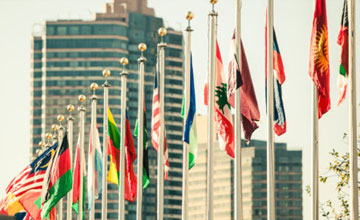
Ruchan Kaya
- Courses3
- Reviews6
- School: Texas A&M University
- Campus: College Station
- Department: Political Science
- Email address: Join to see
- Phone: Join to see
-
Location:
College Station, TX - Dates at Texas A&M University: November 2017 - January 2019
- Office Hours: Join to see
Biography
Texas A&M University College Station - Political Science
Resume
2008
Doctor of Philosophy - PhD
Political Science and Government
University of Florida
Master of Arts - MA
Political Science and Government
University of Florida
2003
Russian
English
Bachelor of Arts
Social and Political Sciences
Sabancı Üniversitesi / Sabanci University
International Development
Statistics
Data Analysis
Qualitative Research
Policy Analysis
SPSS
Grant Writing
Research
Analysis
Editing
International Relations
Public Policy
Program Evaluation
Economics
Politics
Stata
Political Science
Academic Writing
Higher Education
Foreign Policy
Civil Society and Regime Type in European Post-Communist Countries: The Perspective Two Decades after 1989-1991
This essay addresses two controversies on the relationship between civil society and democratization in post-communist countries. It contradicts a tendency to dismiss civil society as a myth
ideology
or framing device for social movements and instead demonstrates that civil society is a real material force that has played a critical role in democratic breakthroughs in the region. It also criticizes the tendency to characterize post-communist civil society as either strong or weak in a blanket fashion. Instead
it shows that looking at differences in the strength of civil society at moments of transition is a good\nindicator of how durable that transition will be. This is illustrated with empirical work on both the breakthrough years of 1989-1991 and the period of the color revolutions in the 2000s.
Civil Society and Regime Type in European Post-Communist Countries: The Perspective Two Decades after 1989-1991
Since the end of the Cold War
political scientists have radically reexamined the role that elections play in authoritarian contexts. Some argue elections are congruent with authoritarianism and actually help to stabilize non-democratic forms of rule. Others challenge this claim by arguing that elections can function as a mechanism for democratization. We test whether elections have functioned as a mechanism of change or of neo-authoritarian stability in the postcommunist world. We generally find that elections neither promote democracy nor strengthen authoritarianism. However
we do find that in energy-rich states elections promote authoritarianism
though of a somewhat more benign sort. We also find that the mechanisms of electoral participation and competitiveness thought to promote democracy function differently in the postcommunist context and explore this in greater detail through a paired case study of electoral mobilization in Slovakia and Belarus.
“Are Elections Mechanisms of Authoritarian Stability or Democratization? Evidence from Postcommunist Eurasia
Ruchan
Kaya
Texas A&M University System
University of Florida
Austin College
Political Science Instructor
Gainesville
Florida Area
University of Florida
Bryan/College Station
Texas Area
Visiting Assistant Professor
Texas A&M University System
Sherman
Texas
Assistant Professor
Austin College
Ph.D Fellow
Gainesville
Florida Area
University of Florida
Possible Matching Profiles
The following profiles may or may not be the same professor:
- Ruchan Kaya (80% Match)
Visiting Assistant Professor
Texas A&M University - Texas A&m University


